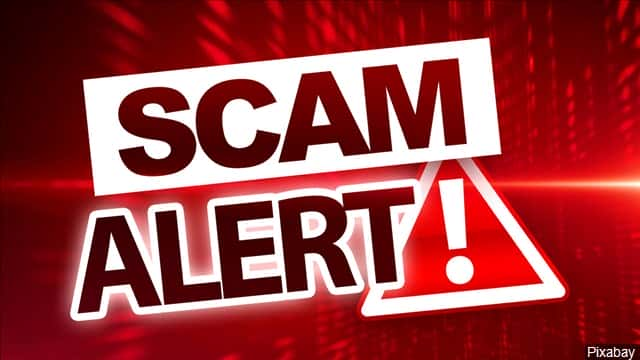The payment pause on student loans is coming to an end after more than three years of relief. The United States Department of Education just stated that student loan interest will restart on September 1st, with payments due in October.

This student loan forgiveness news affects millions of Americans, providing scammers with a perfect chance. In fact, the BBB has already received many reports of fraud involving student loan repayment stating “new 2023 guidelines.” Learn the warning signs of a scam and always do your research before revealing any personal information.
HOW THE STUDENT LOAN FORGIVENESS SCAM WORKS
You get an email, letter, or phone call claiming that you are eligible for “student loan consolidation,” “payment reduction program,” or a similar service. This additional benefit is said to be part of “the new 2023 guidelines,” and the fraudster may even claim to be from the Federal Student Aid (FSA) department.
If you respond, the scammer will seek personal information from you in order to “confirm your identity” or “check your eligibility,” which might include your Social Security number, name and address, and even your FSA.gov login information.
“I received an email stating that the Student Loan Department has been trying to contact me to tell me that all of my student loans are eligible for forgiveness under the new 2023 guidelines,” one student loan recipient claimed. They wanted me to call the number between 11 a.m. and 7 p.m. in Albuquerque, New Mexico, and give them information, in order for them to process forgiveness.” At this point, the loan holder contacted their student loan forgiveness company and discovered that the email was a scam.
The scammer would give you a tempting proposal to minimize your loan repayment after “verifying your identity.” If you accept, you may end yourself paying a third party for months or even years in vain. Your contributions will not be applied to your student loan forgiveness. Even if you do not pay, disclosing personal information puts you in danger of identity theft.
Tips to avoid student loan forgiveness scams:
• Before you proceed, make sure you understand the terms of your student loan and the relief program. Before disclosing personal information, always conduct research. Make sure you understand the specifics of your loan and how student loan forgiveness terms affect you. You may need to look into who your current loan servicer is, as they may have changed. Make contact with them to discuss all of your repayment alternatives and to ensure that your contact information is up to date. Go straight to official government websites for information, such as ED.gov and studentaid.gov.
• Never pay for a free government service. Scammers frequently fool victims into paying for free government programs – or they imply that for a charge, you can obtain more benefits, faster benefits, and so on. A legitimate government agency will not request an advance processing charge. All of these are red flags of a scam.
• Be suspicious of unexpected phone calls pertaining to student loan forgiveness, emails, or text messages purporting to be from the government. Unless you express permission, the government will not contact you through these means.
• Be wary of bogus government agencies or initiatives. Before you agree to anything with someone claiming to be a government person offering you student loan relief, do your extensive research. Scammers frequently create phony government websites that seem similar to actual authorities or initiatives.
• Do you suspect something is wrong? Contact the agency directly. If you have any doubts about the validity of an alleged government representative, hang up the phone or cease emailing/texting. Then, locate the proper contact information (on ED.gov, studentaid.gov, or other official websites) and call to confirm. Then, report any strange phone calls or text messages.
• Proceed with caution, especially if the information comes from a friend. Even if a close friend or family member you trust brought you information on student loan relief, double-check the claims first. BBB received numerous reports of compromised social media accounts being used to disseminate government impostor schemes during the COVID-19 outbreak.
More information regarding scams aimed at young college grads and government impostors can be available at BBB.org. Read the BBB’s tips on loans and credit repair services for further information. If you come across a student loan forgiveness scam (whether you’ve lost money or not), report it to BBB.org/ScamTracker. Your report may assist others in avoiding fraud.




